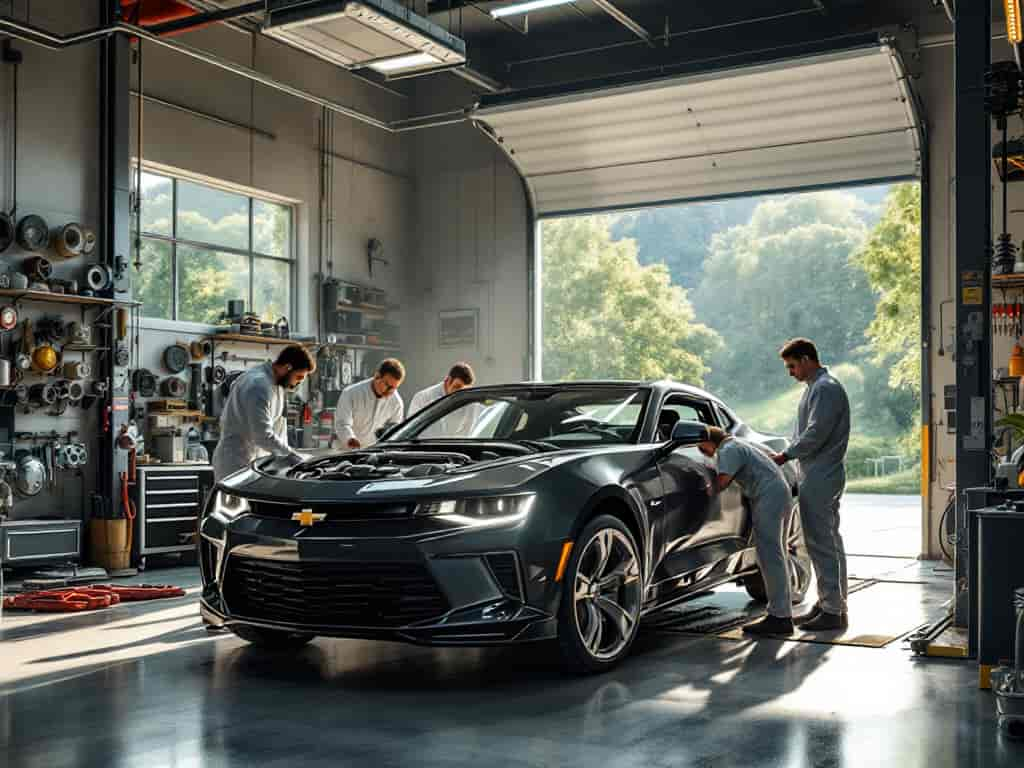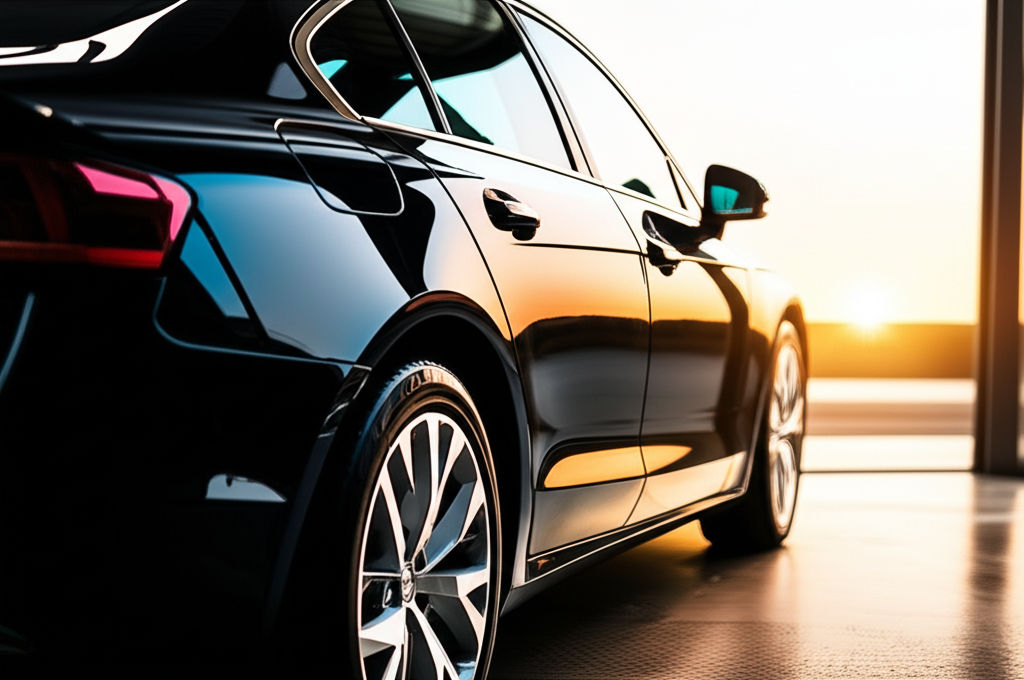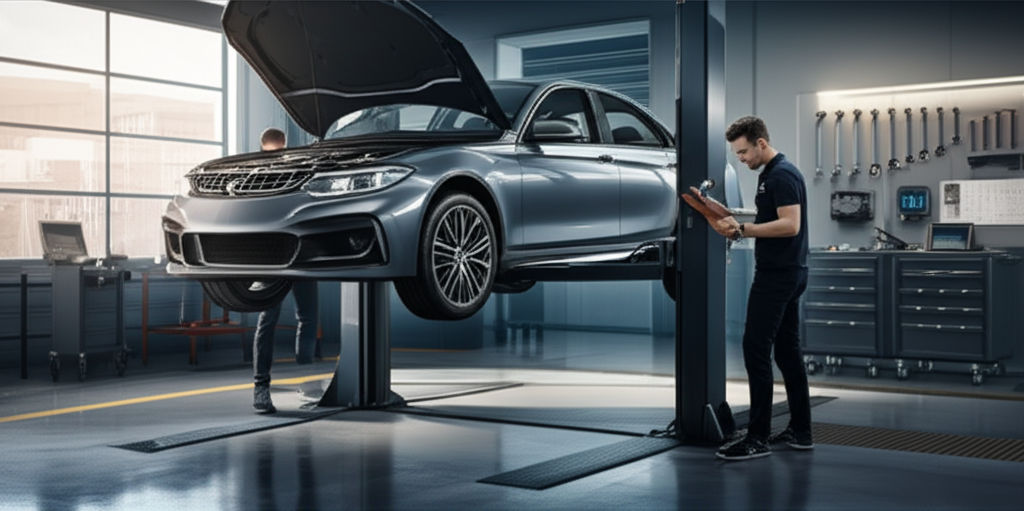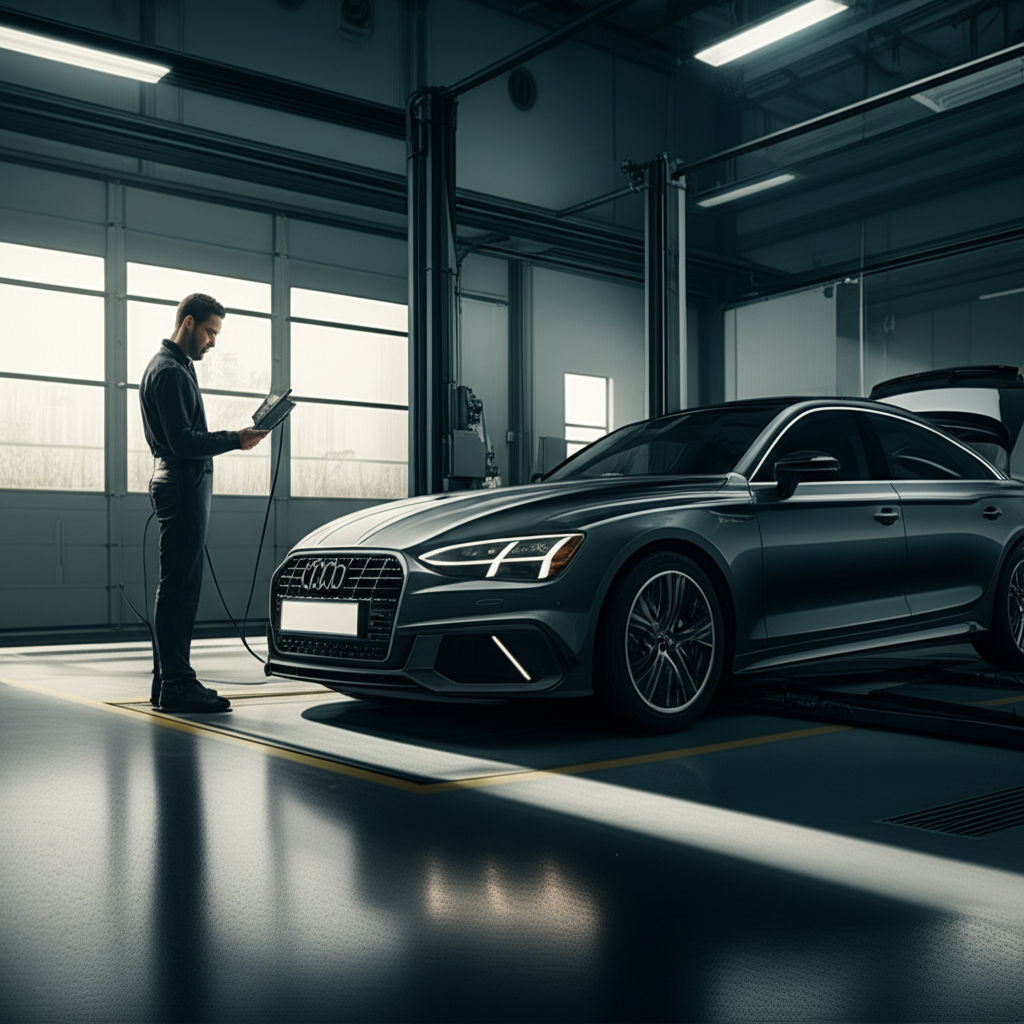How to Convert a Gas Car to Electric: A Guide
Ellie Moore

Photo: How to Convert a Gas Car to Electric: A Guide
How to Convert a Gas Car to Electric: A Step-by-Step Guide
As electric vehicles (EVs) become more popular and the world moves toward greener alternatives, many car enthusiasts and eco-conscious individuals are considering converting their gas-powered vehicles into electric ones. Converting a gas car to electric is not only a fantastic way to reduce your carbon footprint, but it also offers long-term savings on fuel and maintenance. If you’ve ever wondered how to convert a gas car to electric, this comprehensive guide will walk you through the entire process, from choosing the right vehicle to installing essential components.
Why Convert a Gas Car to Electric?
Before diving into the steps, let's first understand why converting a gas car to electric is becoming an increasingly popular option.
- Environmental Benefits: EVs produce zero tailpipe emissions, helping reduce pollution and combat climate change.
- Lower Operating Costs: Electricity is significantly cheaper than gasoline, and EVs require less maintenance because they have fewer moving parts.
- Customization: Converting your car allows you to personalize the electric setup to fit your specific needs, whether it’s for performance, range, or aesthetics.
- Upcycling: Instead of purchasing a new EV, you can breathe new life into an older car that might otherwise be scrapped.
Step 1: Choose the Right Vehicle for Conversion
Not every car is suitable for conversion into an electric vehicle. Ideally, you want a vehicle that is lightweight, has a solid frame, and can handle the modifications. Here are some important considerations when choosing your car:
- Weight and Size: Smaller, lighter cars are easier to convert and will be more efficient after the conversion.
- Vehicle Condition: The car’s frame, body, and suspension should be in good condition. You don't want to spend too much time or money repairing a car before converting it.
- Space: Ensure there’s enough space in the engine bay and under the car for the electric motor, batteries, and associated components.
Step 2: Plan Your Electric Conversion
Converting a gas car to electric requires a detailed plan. You’ll need to decide on various components and systems that will make your EV functional. Here's a breakdown of the key decisions you'll need to make:
2.1 Choosing the Right Electric Motor
The heart of your electric car conversion is the motor. There are several types of electric motors to choose from, but the most common ones are:
- DC (Direct Current) Motors: Easier to find and often cheaper, but less efficient and require more maintenance.
- AC (Alternating Current) Motors: More efficient, offer better performance, and generally require less maintenance. They are the preferred choice for most EV conversions.
2.2 Selecting the Battery Pack
Batteries are crucial to the performance and range of your electric car. When selecting a battery pack, keep the following in mind:
- Voltage: The voltage of the battery pack will determine the power output and speed of your car. Higher voltage systems provide better performance.
- Capacity: The larger the battery pack, the greater the range of your EV. However, larger batteries also add weight, so balance capacity with the car's design.
- Battery Chemistry: Lithium-ion batteries are the most common choice for conversions due to their high energy density, long lifespan, and efficiency.
2.3 Power Controller and Charger
The power controller regulates the flow of electricity between the battery and motor, while the charger replenishes the battery. You’ll need a compatible system to ensure everything runs smoothly.
Step 3: Remove the Internal Combustion Engine (ICE)
Once you’ve selected your car and the components for your electric drivetrain, it’s time to start the actual conversion. The first major step is to remove the internal combustion engine (ICE) and related parts like the exhaust system, fuel tank, and transmission. This is where things can get tricky, as some cars may have complicated engine layouts or limited space.
You’ll need to disconnect the engine from various components, such as:
- The exhaust system
- Cooling system
- Fuel lines and tank
- Engine wiring and sensors
If you're new to car mechanics, this step might be best left to a professional or someone with experience in car disassembly.
Step 4: Install the Electric Motor
The electric motor will typically be installed where the gas engine once resided. Depending on the design of the vehicle and the motor, some custom mounts or adaptors might be needed.
- Positioning: Ensure the motor is mounted securely to avoid vibrations that could cause issues down the line.
- Connections: The electric motor will need to be wired to both the power controller and the battery pack. Proper insulation and safety protocols are crucial during this process.
Step 5: Set Up the Battery Pack
Once the motor is installed, the next step is to install the battery pack. Most DIY conversions involve placing the battery pack in the trunk or under the car, but you need to ensure that it is safely secured.
- Mounting: Secure the batteries with custom brackets to prevent movement.
- Wiring: Connect the batteries to the power controller and the motor. This is a complex process, and ensuring the wiring is done correctly is crucial to avoid electrical shorts or other malfunctions.
- Cooling: Depending on the battery pack, you may need to install a cooling system to ensure the batteries do not overheat during use.
Step 6: Install the Power Controller and Charger
The power controller acts as the middleman between the motor and the battery, regulating the power that flows to the motor. The charger will be responsible for charging the battery pack.
- Power Controller: This is usually installed near the motor and needs to be wired properly to handle the voltage and current requirements.
- Charger: Install the charging port on the car and connect it to the battery pack. You'll also need to ensure you have the right charging equipment and that your home can accommodate the voltage needs.
Step 7: Test and Fine-Tune
Once everything is installed, it’s time to test your electric conversion! During the test drive, you’ll need to check the following:
- Acceleration and Performance: Make sure the car accelerates smoothly and reaches desired speeds.
- Battery Range: Check how far the car can go on a full charge.
- Charging Time: Test how long it takes to fully charge the battery.
- Cooling and Wiring: Ensure there’s no overheating and that all wires are secure.
Step 8: Final Adjustments and Legal Considerations
After testing, you may need to make adjustments, such as fine-tuning the motor’s performance or adjusting the placement of components. Once the conversion is complete, be sure to check with your local authorities regarding regulations for modified vehicles.
- Registration: You may need to register your electric car with the DMV and obtain new tags or titles.
- Inspections: Some regions require electric vehicles to pass specific inspections before they’re roadworthy.
Common Challenges and Solutions
While converting a gas car to electric can be incredibly rewarding, there are challenges to keep in mind. Here are a few common problems and their solutions:
- Cost: EV conversions can be expensive, especially if you’re purchasing high-quality components. Consider sourcing parts secondhand or opting for DIY kits to save money.
- Space Limitations: If your car is small or doesn’t have enough room for the motor and battery pack, you may need to get creative with component placement. Some conversions involve relocating the batteries to the trunk or under the floorboards.
Conclusion: Is Converting a Gas Car to Electric Worth It?
Converting a gas car to electric is a feasible and rewarding project, but it’s not for everyone. The costs, technical expertise, and time required can be significant, so it’s essential to weigh the pros and cons before diving in. If you’re passionate about sustainability and enjoy hands-on projects, this could be an incredibly fulfilling endeavor that benefits both you and the environment.
Frequently Asked Questions (FAQ)
- How much does it cost to convert a gas car to electric? The cost of conversion varies widely, typically ranging from $6,000 to $20,000 depending on the vehicle, motor, and battery pack selected.
- Can any car be converted to electric? Almost any car can be converted to electric, but lighter and simpler vehicles are usually easier and more cost-effective to convert.
- How long does the conversion process take? A DIY conversion can take anywhere from several weeks to several months, depending on your experience and the complexity of the project.
- Are electric car conversions legal? Electric car conversions are legal in most places, but you will need to ensure that your car passes inspection and meets local regulations. Always check with local authorities.
- Is it worth converting an old car to electric? Converting an older car can be a great way to extend its life while reducing emissions. However, it might not always be more cost-effective than buying a new or used EV.
Call to Action:
Ready to start your EV conversion project? Share your thoughts or ask any questions in the comments below! Or, if you found this guide helpful, feel free to share it with fellow eco-conscious car enthusiasts.
Finance & Investment
View All
October 27, 2025
Texas Democratic Party Finance ChairElevate your online presence with expert SEO content. Understand its principles, why it's vital for rankings & trust, and actionable strategies to create it.
Ellie Moore

April 4, 2025
Top Jobs in Finance for Fresh GraduatesUnlock your online potential with expert SEO content. Drive traffic, build authority, and boost conversions through high-quality, optimized writing.
Ellie Moore

February 21, 2025
Western Finance Trusted LoansStand out online! Expert SEO content builds trust, boosts rankings, and drives sustainable organic growth. Deliver value & prove authority.
Ellie Moore

March 26, 2025
Snap Finance Customer Help and Contact InfoElevate your online presence. Expert SEO content builds trust, boosts rankings, and drives organic traffic by delivering E-E-A-T-aligned, valuable insights.
Ellie Moore

January 2, 2025
Explore the Global Finance DistrictGo beyond keywords! Craft expert SEO content using E-E-A-T to rank higher, engage users, and build authority. Your guide to digital domination.
Ellie Moore

November 18, 2025
Understanding Leveraged Finance ConceptsUnlock top rankings & build trust with expert SEO content. Go beyond keywords to create valuable, user-centric content that search engines and readers love.
Ellie Moore
Insurance
View AllMaster Essential Direct Auto Insurance to cut costs, optimize coverage, and boost financial security. A must-read for policyholders, risk managers & agents.
Ellie Moore
Protect your property from natural disasters. Find out what’s included in insurance policies for floods, earthquakes, and more!
Ellie Moore
Climate change impacts are rising—learn how climate risk insurance offers protection against extreme weather and environmental losses.
Ellie Moore
Learn how self-insured companies manage risks, reduce costs, and create customized insurance solutions for employees.
Ellie Moore
Navigate your Allstate car insurance quote with ease. Discover optimal coverage, understand rates, and maximize savings for peace of mind.
Ellie Moore
Safeguard your automotive investment. Gap insurance covers the financial gap if your totaled car's value is less than your outstanding loan.
Ellie Moore
Education
View AllIs self-directed learning the future? Learn how students can take control of their own education, boost motivation, and achieve better results.
Read MoreDiscover how flipped classrooms work and why they’re becoming popular. Learn the key benefits of this innovative teaching approach.
Read MoreEthics in education is vital for balanced learning. Learn how to teach morality alongside knowledge transfer in today’s classrooms.
Read MorePlay is crucial in early learning! Discover how play-based learning enhances cognitive, emotional, and social development in young children.
Read MoreResearch universities play a key role in advancing knowledge. Explore how they drive innovation, discovery, and societal progress.
Read MoreRevive ancient teaching with the Socratic method! Learn how this questioning approach encourages deep thinking and active learning.
Read MorePopular Post 🔥
View All
1
2
3
4
5
6
7
8
9
10
Health






Automotive
View All
August 24, 2025
Heritage Automotive Service With Tradition
Rediscover true automotive craftsmanship. Heritage auto service offers unparalleled expertise, preserving the integrity and legacy of your cherished vehicle.

February 11, 2025
Top In-Car Entertainment Upgrades for Drivers
Upgrade your in-car entertainment! Find out the best modern audio, video, and smart tech options to enhance your driving experience.

September 12, 2025
Joe Bullard Automotive Premier Car Solutions
Joe Bullard Automotive: Your trusted partner for premier car solutions. Experience unparalleled service, expertise, and a customer-first approach since 1955.

August 6, 2025
Diamond Automotive Services That Shine Bright
Discover diamond-level car care! Learn what makes automotive services shine with expert technicians, transparency, and trust to protect your valuable vehicle.

August 5, 2025
What You Need To Know About Cee Jay Automotive
"Cee Jay Automotive" isn't one company. Explore its diverse forms, from body repair to auto suppliers, and what to know about each.

August 27, 2025
What To Expect From Precise Automotive Group
Expect the best from Precise Automotive Group: certified experts, transparent pricing, and trusted auto care for your vehicle's long-term health.

















